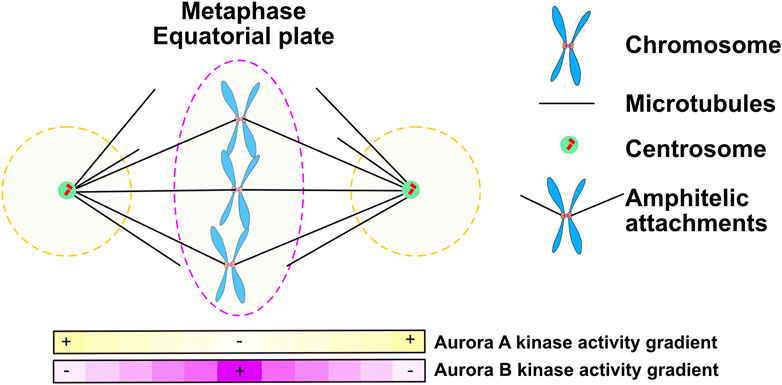Figures and data in Aurora kinase A localises to mitochondria to Biology Diagrams Aurora kinases, which have been implicated in several vital events in mitosis, represent a protein kinase family highly conserved during evolution.

Abstract. Aurora kinases, which have been implicated in several vital events in mitosis, represent a protein kinase family highly conserved during evolution. The activity of Aurora kinases is delicately regulated, mainly by phosphorylation and degradation. Deregulation of Aurora kinase activity can result in mitotic abnormality and genetic instability, leading to defects in centrosome function These inhibitors obstruct Aurora kinases, which in turn leads to aberrant mitosis. As a result, the p53-dependent checkpoint is activated and results in the induction of a G1-like cell-cycle arrest. Several small-molecule inhibitors of Aurora kinases, such as VX-680, PHA-739358 and AZD-1152, have shown anti-cancer effects in preclinical and
A — A guardian of poles Biology Diagrams
For this reason the Aurora kinases are potential targets in the treatment of cancer. In this review we discuss the biology of these kinases: structure, function, regulation and association with cancer. Methods and results: A literature search. Conclusion: Many of the multiple functions of mitosis are mediated by the Aurora kinases. Their Abstract. Aurora kinases, a family of serine/threonine kinases, consisting of Aurora A (AURKA), Aurora B (AURKB) and Aurora C (AURKC), are essential kinases for cell division via regulating mitosis especially the process of chromosomal segregation. Besides regulating mitosis, Aurora kinases have been implicated in regulating meiosis.

Aurora kinases are serine/threonine kinases essential for the onset and progression of mitosis. Aurora members share a similar protein structure and kinase activity, but exhibit distinct cellular and subcellular localization. AurA favors the G2/M transition by promoting centrosome maturation and mitotic spindle assembly. AurB and AurC are chromosome-passenger complex proteins, crucial for Aurora A is localized to spindle poles where it provides spatial information for spindle functions in prometaphase. Aurora A is a kinase that is highly related to Aurora B but the two kinases localize to distinct subcellular regions during mitosis . From prometaphase to anaphase Aurora A localizes to the two poles of the spindle, which are the During mitosis, Aurora kinases regulate the structure and function of the cytoskeleton and chromosomes and the interactions between these two at the kinetochore. They also regulate signalling by
